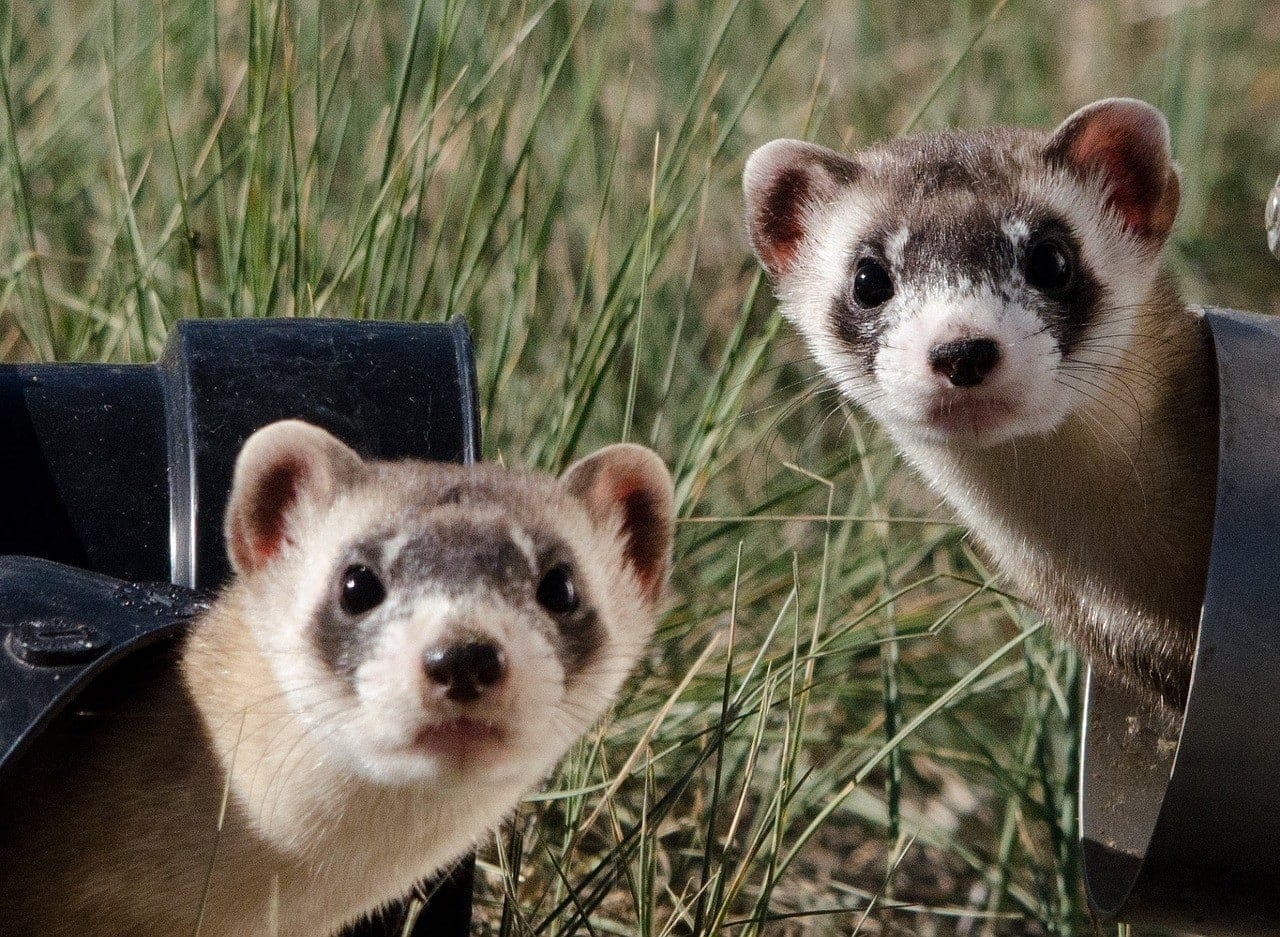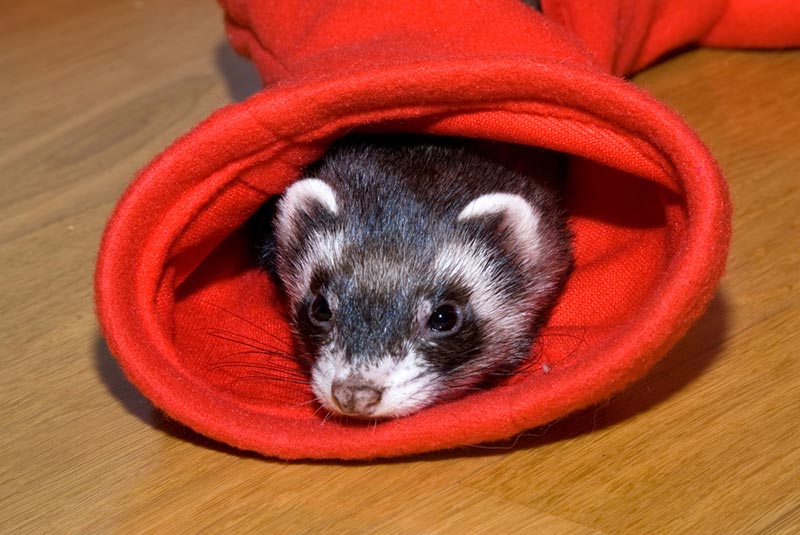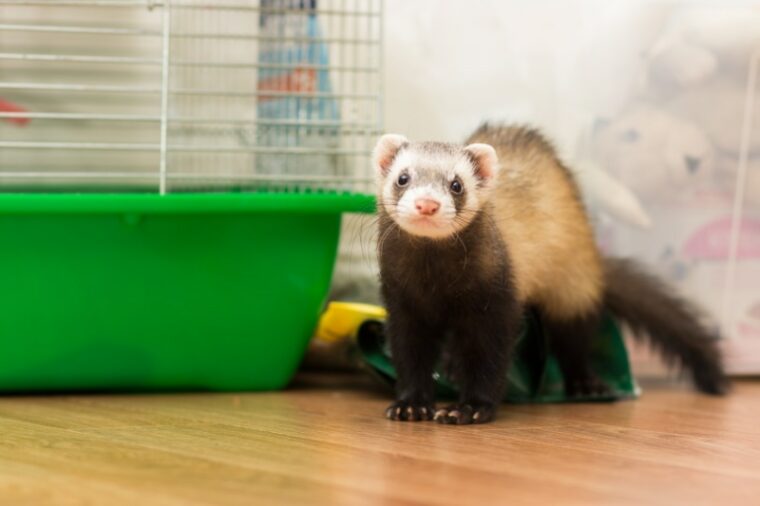
Click to Skip Ahead
Ferrets are unique creatures, known for their playful and curious nature. They are intelligent, social animals that can form strong bonds with their human caregivers. Ferrets are highly energetic and require lots of physical activity and mental stimulation. They love to explore and play, often engaging in a series of frenzied leaps and bumps into objects known as the “weasel war dance.” But this isn’t the only sign that ferrets are happy. Understanding their unique characteristics and behaviors is key to recognizing the signs of happiness in your ferret.
The 18 Signs of a Happy Ferret
Here are 18 signs to look out for that indicate your ferret is happy:
1. Weasel War Dance
One of the most distinctive signs of a happy ferret is the Weasel War Dance. This behavior involves a series of hops, sideways leaps, and bumps into nearby objects. It’s an expression of pure joy and excitement, often perfoVA yrmed when they are playing or exploring something new. If your ferret performs this dance, it’s a clear sign that they are content and happy.
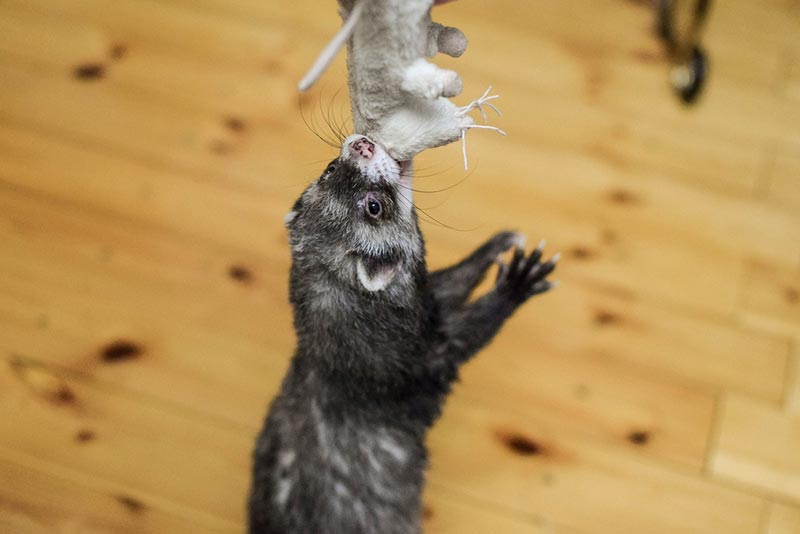
2. Playful Behavior
Playfulness is a key indicator of happiness in ferrets. They enjoy engaging with toys, other ferrets, and their human caregivers. Happy ferrets will often chase, pounce, and play-fight, displaying a high level of energy and curiosity. A lack of playful behavior could indicate boredom or illness.
3. Curiosity and Exploration
A happy ferret is a curious one. They love to investigate their surroundings, often squeezing into small spaces or tunneling through objects in their environment. If your ferret is actively exploring and interacting with their environment, it’s a good sign they are content.
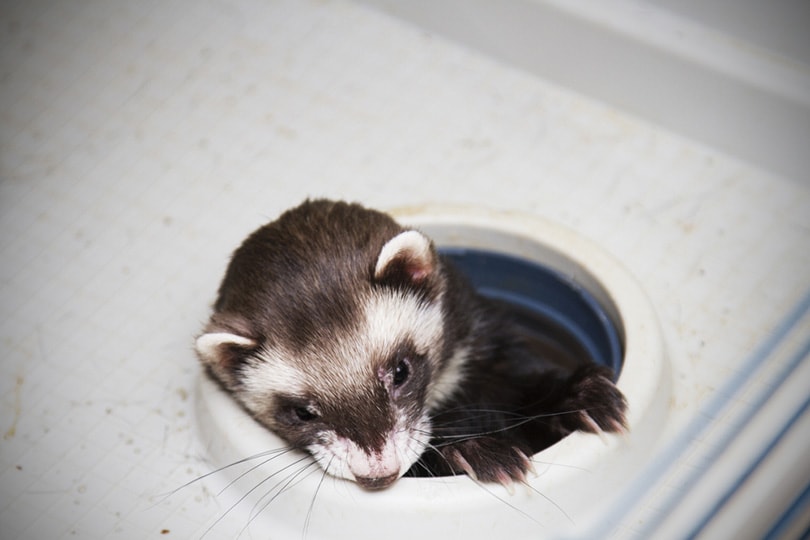
4. Healthy Appetite
Regular eating habits are another sign of a happy ferret. Ferrets have a fast metabolism and require several small meals throughout the day. If your ferret is maintaining a healthy appetite, it’s likely they are in a good state of mind.
5. Normal Sleeping Patterns
Ferrets sleep a lot — up to 14–18 hours a day! This is part of their natural sleep pattern. If your ferret is sleeping comfortably and waking up for active periods, they are likely content. Changes in sleeping patterns may indicate stress or illness.
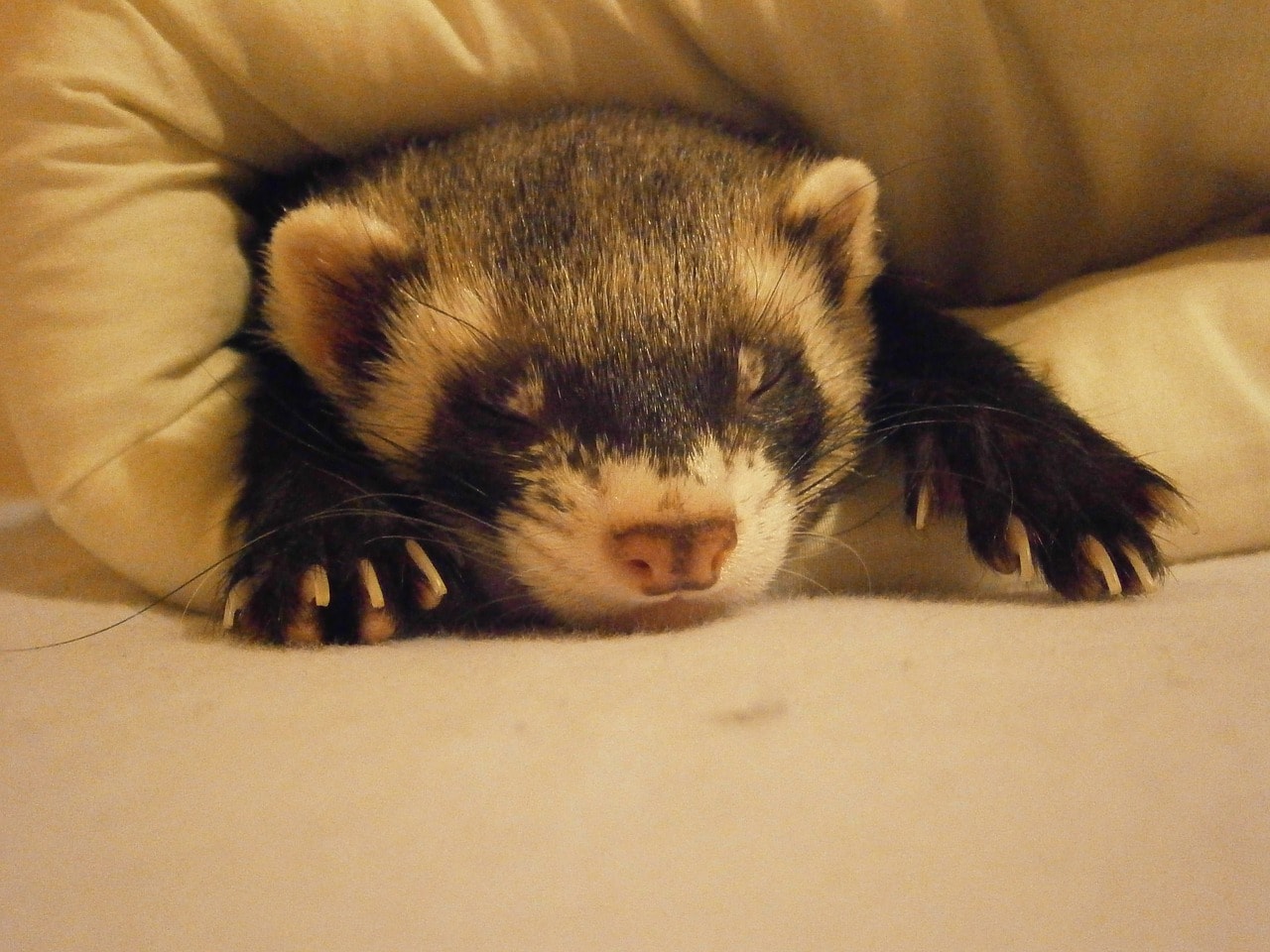
6. Dooking Sounds
Dooking is a unique vocalization made by ferrets when they are excited or happy. It sounds like a series of soft clucking or chuckling noises. If your ferret is dooking during playtime or exploration, it’s a delightful sign of their happiness.
7. Bright and Alert Eyes
When awake, a happy ferret’s eyes will appear bright and alert. They should show interest in their surroundings and respond positively to interaction. Dull or half-closed eyes might indicate that your ferret is unwell or distressed.
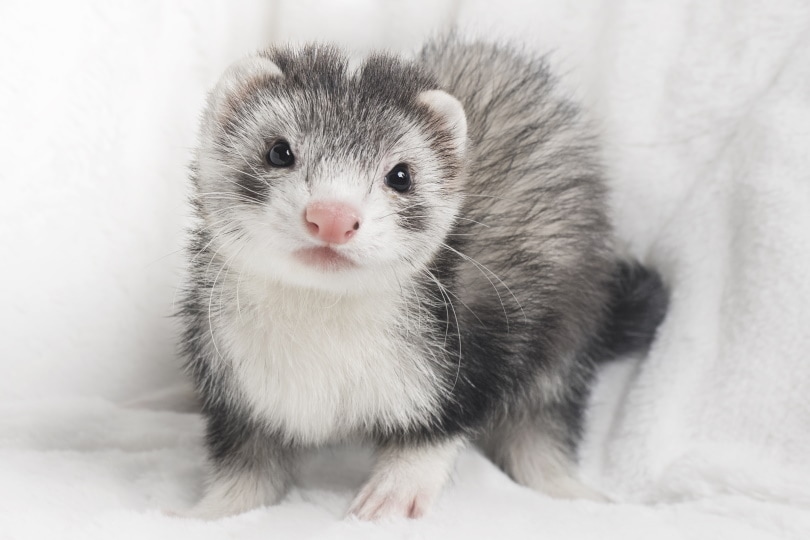
8. Comfortable Around Humans
A socialized, happy ferret will generally feel comfortable around their human caregivers. They will approach you for interaction, accept handling, and may even seek out your company. If your ferret seems relaxed and comfortable around you, it’s a positive sign of their well-being.
9. Tail Wagging
Tail wagging in ferrets is often seen when they are excited or pleased. It can accompany play behaviors or the Weasel War Dance. If your ferret’s tail is wagging during playtime, it’s a sign they are enjoying themselves.
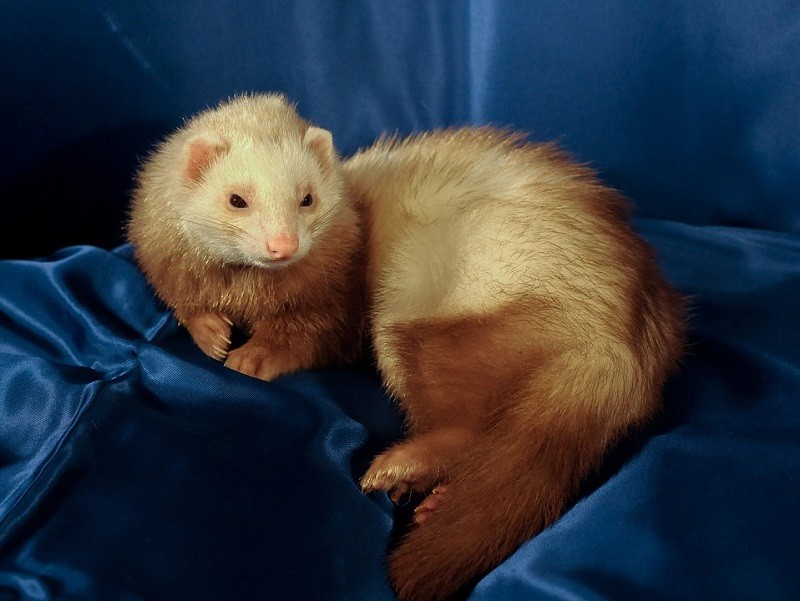
10. Interaction with Other Ferrets
Ferrets are social animals and usually enjoy the company of their fellow ferrets. They engage in group play, grooming each other, and cuddling together during rest periods. Positive interactions with other ferrets are a good sign of a happy ferret.
11. Regular Grooming
Self-grooming is a sign of contentment in ferrets. They will often be seen cleaning their fur and grooming their face with their paws. Regular grooming indicates your ferret is comfortable and content in their environment.
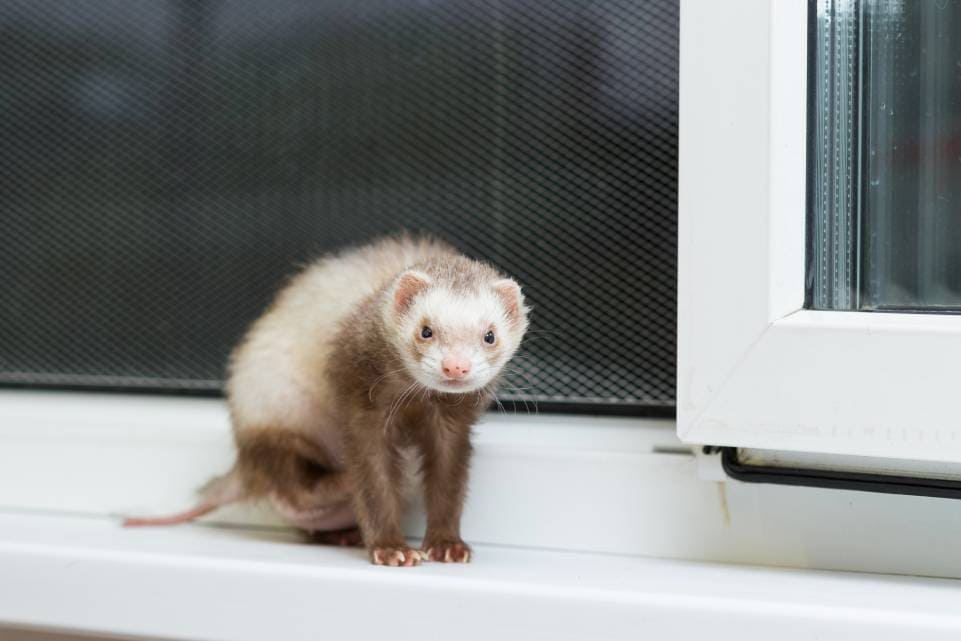
12. Healthy Coat
A shiny, healthy coat can indicate a happy ferret. A well-fed and content ferret will usually have soft, glossy fur. Dry, dull, or patchy fur can be a sign of nutritional deficiencies or health issues.
13. Cuddling or Nuzzling
Ferrets show affection in various ways, including cuddling and nuzzling. They may snuggle up with other ferrets or their human caregivers during rest periods. This affectionate behavior is a lovely sign of a content and happy ferret.
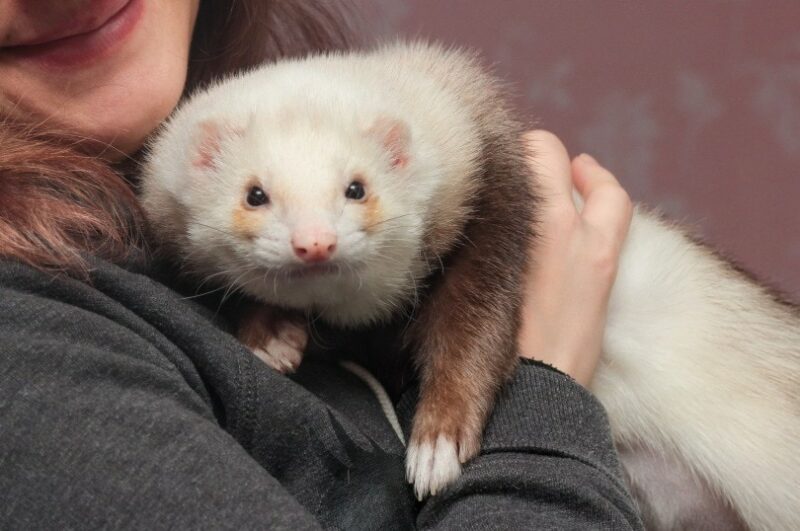
14. Consistent Weight
Maintaining a consistent weight is another sign of a healthy, happy ferret. Sudden weight loss or gain can be a sign of health issues and should be checked by a vet. Regularly monitoring your ferret’s weight can help ensure they are staying healthy.
15. Chasing or Pouncing
These are playful behaviors indicative of a happy ferret. Chasing and pouncing are part of the ferret’s natural hunting instincts and are often seen during playtime. If your ferret is regularly engaging in these behaviors, it’s a good sign they are happy and stimulated.
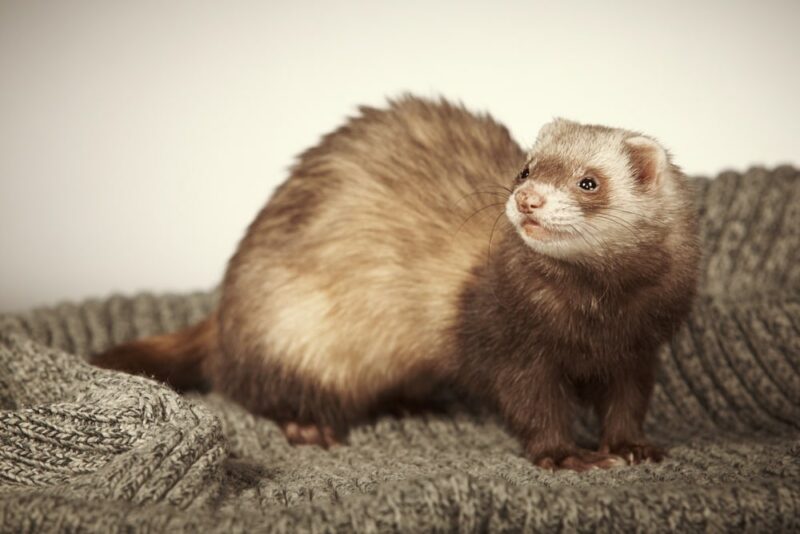
16. Relaxed Body Language
When not playing or exploring, a happy ferret will often display relaxed body language. They may sprawl out comfortably or curl up for a nap. Tense or hunched body language might indicate your ferret is stressed or unwell.
17. Positive Responses to Stimulation
Happy ferrets generally respond positively to new toys, environments, or experiences. They are curious and adaptable creatures that enjoy exploring new stimuli. If your ferret appears interested and engaged with new things, it’s a good sign they are happy.
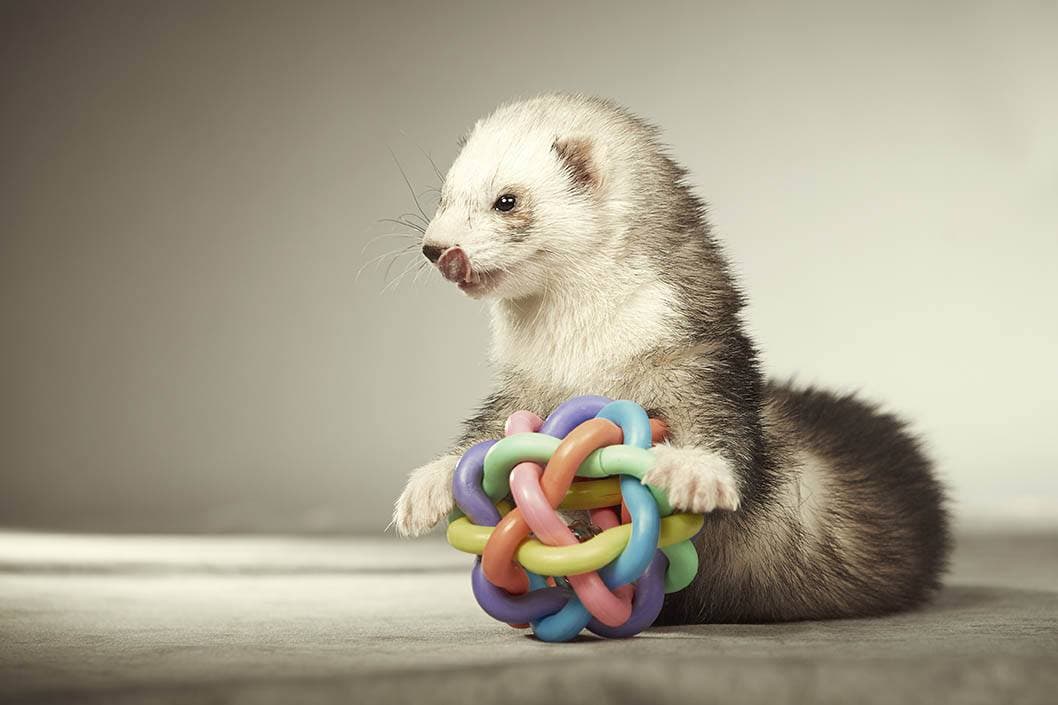
18. Litter Box Usage
Regular use of the litter box suggests your ferret is comfortable in its environment. Ferrets can be trained to use a litter box, and consistent usage indicates they feel secure and content. Changes in litter box habits could indicate stress or health issues.
 Ensuring Your Ferret’s Happiness
Ensuring Your Ferret’s Happiness
Playtime and Exploration
One of the key ways to encourage your ferret’s positive well-being is through playtime and exploration. Ferrets are naturally curious and energetic creatures that need plenty of physical activity. Offer a variety of toys for them to interact with and rotate these regularly to maintain their interest. This will keep them mentally stimulated and physically active, contributing to their overall happiness.
Living Environment
The living environment plays a crucial role in a ferret’s happiness. Ensure their enclosure is comfortable, clean, and stimulating. Consider including elements such as tunnels, hammocks, and hiding spots to cater to their natural behaviors. A well-arranged, clean environment allows your ferret to explore, play, and rest comfortably, enhancing their overall well-being.

Social Interaction
Ferrets are social animals and thrive on interaction. Spending quality time with your pet is essential for their happiness. Engage in play activities, allow them to interact with other ferrets if possible, and ensure they feel comfortable and secure around humans. This social interaction helps to build a strong bond between you and your ferret and contributes significantly to their happiness.
Understanding Your Ferret’s Individuality
Remember, every ferret is unique. Taking the time to understand your pet’s individual personality and preferences is key to their happiness. Some may prefer certain toys, while others might enjoy specific types of interaction. By understanding and catering to these preferences, you can provide the right care and attention to ensure your ferret leads a happy, healthy life.
Signs Your Ferret Is Unhappy
Ferrets, like any other pets, can display changes in behavior and physical appearance when they are unhappy or unwell.
If you notice any of these signs, it’s important to consult with a vet to rule out any potential health issues. It’s also crucial to ensure your ferret’s living environment is stimulating and comfortable, and that it gets plenty of social interaction and playtime.
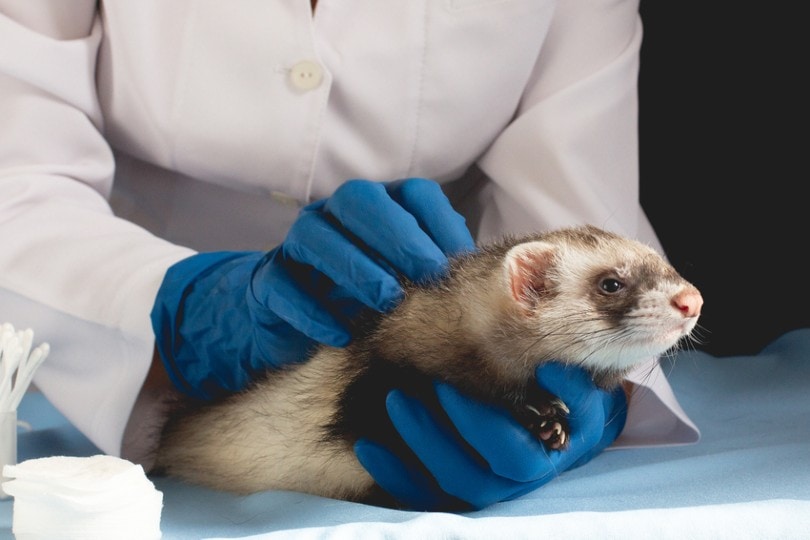
Conclusion
In conclusion, understanding your ferret’s unique behaviors and signals is the key to ensuring their happiness. From the joyous Weasel War Dance to their playful pouncing, each behavior paints a picture of their well-being. Regular interaction, a stimulating environment, and a variety of toys all contribute to a happy, healthy ferret. Remember, every ferret is an individual with their own preferences and personality. By tuning into these, you can build a strong bond with your furry friend and provide them with a fulfilling, joyful life.
Featured Image Credit: Fayzulin Serg, Shutterstock




